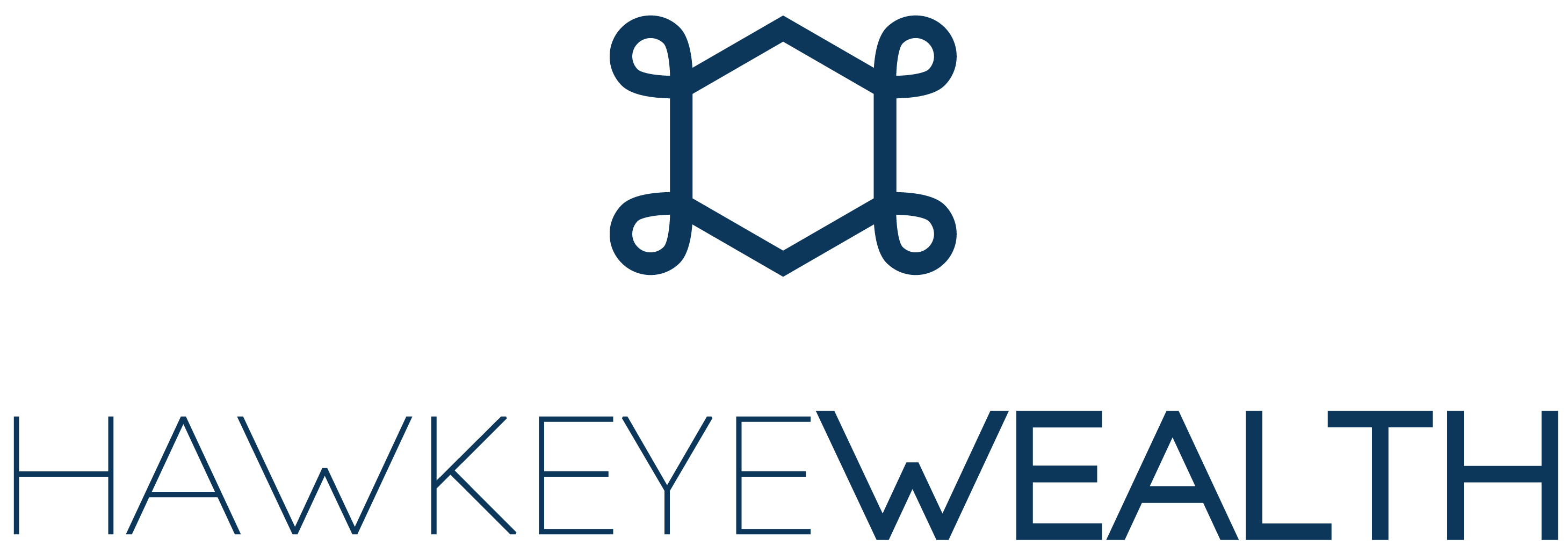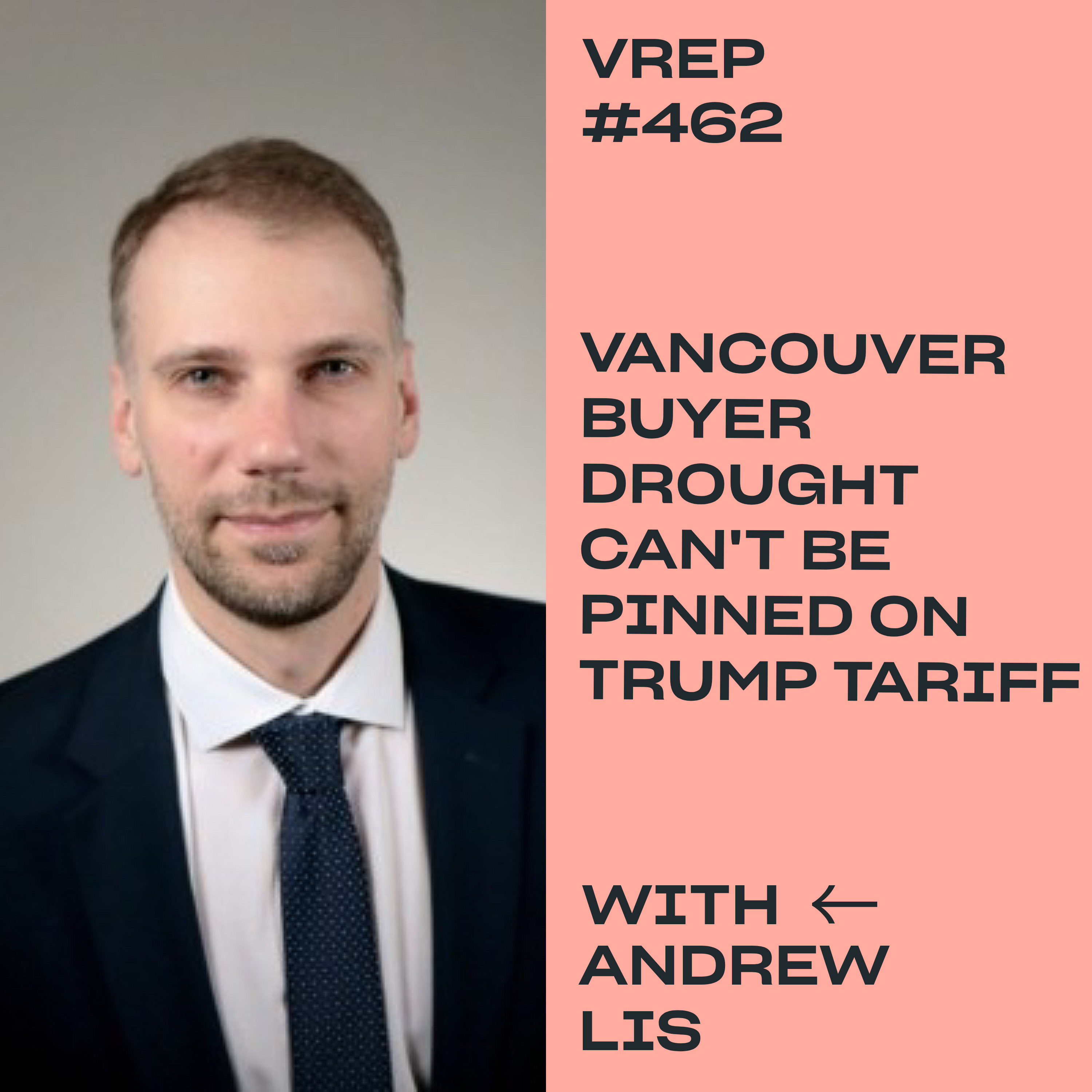Episode 318 – April 14, 2022
Listen On: Apple Podcasts | Spotify | Google Podcasts | YouTube
The Bank of Canada just hiked the benchmark interest rate to 1% at a time with runaway inflation and a softening national housing market. But what does all this mean for prices and Vancouver real estate?
This week, Andrey Pavlov, Professor of Finance & Real Estate at SFU’s Beedie School of Business, sits down with Matt & Adam to break down the key metrics to follow in these uncertain times. Will increasing mortgage payments force owners to sell? Are we heading recession? And what happens in the Vancouver real estate market in the next 1, 3 & 5 years? This is a great one!
Listen to Episode
Guest Information

Andrey Pavlov
Andrey D. Pavlov specializes in risk management for real estate, financial derivatives and digital currency investments at the Beedie School of Business, Simon Fraser University, Vancouver, BC, where he is professor of finance. He has also worked on the modelling of aggressive lending practices, risk management for publicly traded real estate companies, and mortgage and equity securitization.
He earned his Ph.D. from the Anderson School at the University of California, Los Angeles (1999) and was a visiting Associate Professor at the Wharton School, University of Pennsylvania during the 2006 – 2008 period. Since then he has continuously taught real estate finance for the Wharton Executive Education program. He is a fellow of the Ziman Real Estate Center at UCLA, a winner of the Homer Hoyt Advanced Studies Institute Best Dissertation Award (2000), and a post-doctoral honoree of the Homer Hoyt Advanced Studies Institute (2005).
Professor Pavlov has a wide range of academic and industry-oriented publications. He has consulted for the U.S. Financial Industry Regulatory Authority, the U.S. Department of Housing and Urban Development, the Government of Canada, the Government of British Columbia, the Canadian Mortgage and Housing Corporation, and private sector insurers, mortgage lenders and hedge funds.
Episode Summary
Who is Andrey Pavlov?
I’m a professor of finance at SFU’s Beedie School of Business with my primary research focus being real estate. That just so happens to be the most important topic in the city of Vancouver and the entire province. I look at the issues we’re facing in the housing market and study how we can make progress in the right direction.
How’s the global economy doing?
I think the global economy is doing pretty well. Most places are recovering from the pandemic, though some places are still in lockdown. All of the fiscal and monetary stimulus that were put in place during the pandemic are making their way through the economy. That’s generating a demand for everything.
The issue is on the supply side. It’s so difficult to get things done quickly and efficiently; we’re struggling to produce and there are shortages. That’s why we’re seeing high inflation here and around the world.
Will raising interest rates fix inflation?
Inflation is the increasing prices of a basket of goods. In theory, that’s clear but in practice, it gets a bit harder to measure because there are many causes for price increases. Typically, economies overheat, there’s too much demand for goods, labour needs increase and if that gets out of control, prices rise too much. The central bank can raise interest rates to slow that cycle, but need to be careful not to raise them too high to the point of hurting the economy.
The problem is today’s inflation is caused by other factors. The war in Ukraine is having an effect. And it is just hard to produce things; traditional supply chains are suffering. So raising interest rates won’t impact commodity pricing. The price of oil or wheat won’t change because the Bank of Canada raises interest rates.
So we do need to raise interest rates in order to slow local demand but interest rates have limited power in stopping inflation, since so much of inflation is caused by rising commodity pricing.
Is raising interest rates 0.5% aggressive or correct?
With inflation at 4-5% in Canada and at 7% in the US, half a percent increase in interest rates is not that much. The Bank of Canada is cautious and will keep increasing rates, but we won’t see anything super high. That is because they know interest rates aren’t impacting inflation that much. So if they keep raising the interest rate, it will only cause pain to consumers without affecting pricing.
I think we’ll see more small raises to the interest rate after the 50 basis point raise in April, but it will be limited. And that’s because the power of interest rates on inflation is limited.
How do we fix the supply chain issues and high commodity prices that are causing inflation?
I think this presents an opportunity for Canada to bring production back home and start making things here. To do this, the government needs to get out of the way and reduce the red tape. We need to make it easier to start and run a business in Canada and we need to simplify and lower taxes.
Some sectors require a lot of labour, like textiles. We won’t be able to compete in those sectors because there is cheaper labour elsewhere. But there are other sectors that require little unskilled labour, like pharmaceuticals. There’s no reason why we weren’t producing vaccines in Canada. But we made it so difficult to run a pharmaceutical business in Canada, that those businesses went elsewhere.
Not only will bringing production to Canada help with the supply issues, but it will generate jobs for the broad population. Then if we have inflation because of global commodity pricing, our local income would still grow.
We could step in and replace other countries and industries. There are a lot of opportunities right here in BC. A lot of production could happen right here at home.
Keep your finger on the pulse of Vancouver’s real estate market with our Live Wire email newsletter.
What do inflation and interest rates mean for Vancouver real estate?
Real estate is hugely impacted by inflation and interest rates. With inflation at 4-5% and mortgage interest rates at 3-4%, interest rates are still below inflation. If you can hold onto a real estate asset for a while, it’s expected to appreciate at least at the rate of inflation. So if you have high inflation, your asset value goes up more than your mortgage payment. The appreciation of your asset will pay your mortgage.
That sounds good in theory, but you have to be able to hold onto your asset. If you can’t make your mortgage payments, you’ll lose your asset and inflation is of no help. As long as you can keep your property, inflation helps you.
If you have a mortgage that is 10x your income, a 1% increase in mortgage rates means you need a 10% increase in your income. Incomes are growing, but generally only at the rate of inflation. So people can get into trouble if they are highly leveraged with a mortgage 5-10x their income, because their income can’t keep up with their debt payments.
The next 6-18 months will be a difficult period if you’re overleveraged. If you can hold onto your asset for the long run, you’re fine. But if you can’t make payments in the short term, you’re in trouble. A rise of 75 basis points this year isn’t too bad but when we start to see 1-1.5% increases, people may not be able to make their payments or get into the market.
What should real estate buyers and owners keep in mind in our current rising interest rate and high inflation market?
You want to own assets and have leverage. Debt payments are fixed and when inflation is high, those payments become easier to make because you’re paying with inflated dollars. You also want to have assets because they’re going up at least with the level of inflation. That is relatively low-risk over 5-10 years.
The trouble is in the short term. You have to make sure you can make your mortgage payments in the short term. So the lesson is to buy as much as you can and borrow as much as you can, as long as you can make your payments over the next 2-3 years. Risk management should be focused on the next few years.
What is the new normal for interest rates?
As long as the central banks don’t overdo it with interest rates, I think we’ll be okay. Because other than the supply issues, the fundamentals in the economy are strong. But if we go higher than a 1-1.5% increase, we do run the risk of going into another recession. And if that happens, interest rates will go back to zero immediately.
It’s tricky for banks to find the right balance of trying to curb inflation while not hurting the economy. Chances are mistakes will be made. We may overreact a little but hopefully that is detected quickly.
So the new normal for interest rates is high volatility. I wouldn’t be surprised if we saw one or two increases after the 0.5% increase in April. But I also wouldn’t be surprised if interest rates dropped 12-18 months from now. This high volatility makes it difficult for people and businesses to plan, but I don’t see a way around it.
Keep your finger on the pulse of Vancouver’s real estate market with our Live Wire email newsletter.
Are you optimistic about the economy?
I am optimistic about the economy because there is demand out there. Businesses want to sell their products and most are able to right now. The issues are on the supply side. But people are smart. I’m optimistic that people will figure that out. And they already are! For example, the shortage in vehicles seems to be figured out all right.
I think it’s easier for businesses to figure out how to get products to market. That’s a lot easier than an economy where there is no demand. No demand is a lot harder to fix than supply issues.
People are concerned about a recession because they are worried central banks will overreact when raising interest rates and kill the demand we have now. But if that happens, hopefully the banks will move fast to lower interest rates and get demand back up.
How does inflation impact rental prices? What happens to rents in Vancouver?
Nothing happens to rental prices in Vancouver because we are so undersupplied. Rental rates are not going down in Vancouver. We need to vastly increase our rental supply and until that happens, prices will not be going down.
Normally rents go up at least at the rate of inflation. But what drives rental prices in Vancouver is the shortage of supply. So inflation adds to that pressure, but what determines rent prices is the regulation. Rents on new units may go up faster than inflation but at the end of the day, inflation makes very little difference.
Would you buy a home right now?
If you have a locked in interest rate from a few months ago, do you buy now with that locked in lower rate? Or do you wait 6-12 months and hope prices go down, but you’ll have a higher interest rate? It’s a tricky question. There’s no guarantee that prices will fall. Inflation encourages more people to get into the market since asset values are going up, so there’s more competition.
If you find a property that you like and think you’ll stay in for 5-10 years, great. Buy it now and lock in your interest rate. Prices may fall in the next 6-12 months but they might not. And it won’t matter to you because you’re in for the long term.
But don’t jump in and buy something just because your rate is expiring. If you can’t find something you like, wait it out. Even if prices don’t go down, there will at least be more product choice in the market.
Which areas will be hit hardest by rising interest rates? Which areas are doing well?
It’s more about the neighbourhoods in which people are overextended. Recent homeowners can run into trouble if interest rates increase substantially.
It’s become clear that people prefer space, backyards and single family homes throughout the pandemic. Abbotsford and Langley still have more reasonably priced single family homes, so those areas are still doing well. There may be some migration back to downtown and high density areas, but some people have discovered they really value single family homes. We may have lockdowns in the future and people will want their space.
Keep your finger on the pulse of Vancouver’s real estate market with our Live Wire email newsletter.
Episode Host

Adam Scalena
Adam is a full-service realtor, specializing in Vancouver’s best areas. His systematic approach to real estate and dedication to his clients has consistently placed him within the top 10% of realtors operating within Greater Vancouver.

Matt Scalena
Matt is real estate obsessed and considers himself a lifelong student of the Vancouver real estate market. As a co-manager of the Scalena Real Estate team, Matt prides himself on expertly advising buyers and sellers on all aspects of the fast-paced, dynamic Vancouver real estate market. He is present at every stage of the process, from that first phone call or email right through to when keys are exchanged between sellers and buyers.







